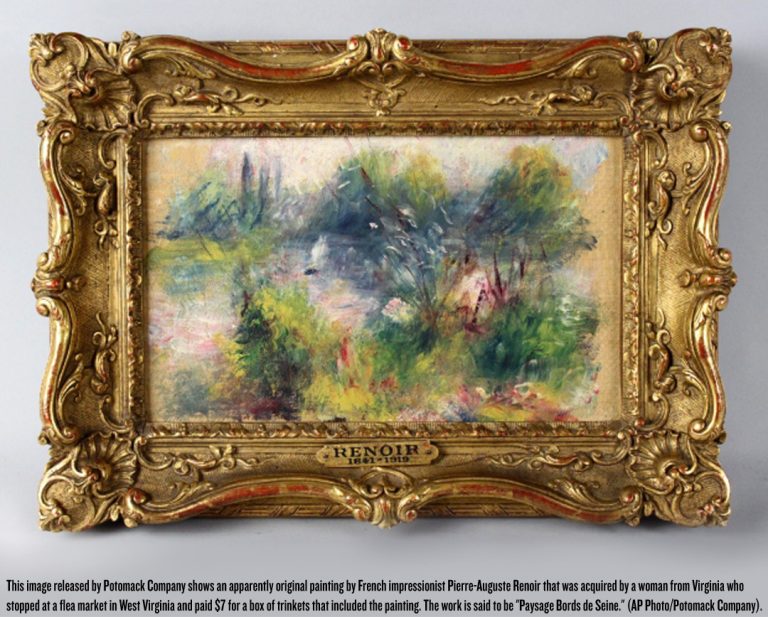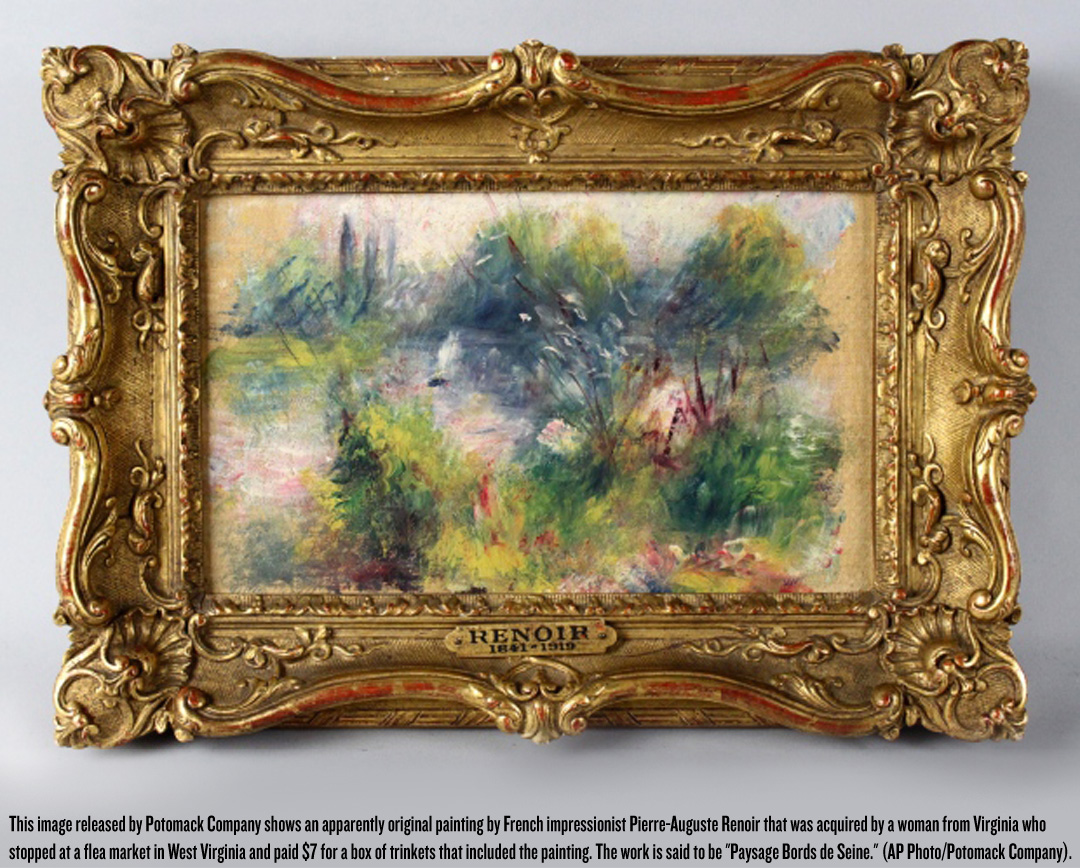First published by Associated Press (September 13, 2012) WASHINGTON ☛ A woman who paid $7 for a box of trinkets at a West Virginia flea market two years ago apparently acquired an original painting by French impressionist Pierre-Auguste Renoir without knowing it. The woman considered discarding the painting to salvage its frame, but instead made an appointment to have it evaluated in July by the Potomack County auction house in Alexandria, Virginia, said its fine arts director Anne Norton Craner. When the woman pulled the painting out of a garbage bag she carried it in, Craner was nearly certain the painting was a Renoir with its distinct colors, light and brushwork. A plaque on the front labeled it “Renoir.”
“My gut said that it was right, but you have to then check,” Craner said. French handwriting on the back of the canvas included a label and number. Craner turned to the catalog by French gallery Bernheim-Jeune that’s published all of Renoir’s work. “Low and behold, it was in volume one,” she said. An image of the painting was published in black and white, and the gallery’s stock number matched the flea market find. So Craner made a digital image of the flea market painting, converted it to black and white for a closer look, and the brush strokes also matched, she said. “It’s not a painting you would fake,” Craner said. “If you’re going to fake something, you’d fake something easier.”
Painting No. 24349 turns out to be Renoir’s painting Paysage Bords de Seine, which translates to Banks of the River Seine, Craner determined. It dates to about 1879 and measures 6 inches by 10 inches. The painting is set for auction Sept. 29th, and it could fetch US$75,000 or more, Craner said. Elizabeth Wainstein, owner of the Potomack Co., said there’s no doubt about the painting’s authenticity. The Shenandoah Valley woman found the painting and kept it in storage for nearly two years has declined to publicly disclose her name. After weeks of research, Craner believes Renoir gave the painting to a woman who modeled for him. The painting was then sold to the Bernheim-Jeune art gallery for 5,000 francs in 1925, according to gallery records. The following year, the gallery sold the painting to American lawyer Herbert L. May who kept homes in New York and Geneva and also worked for the government in Washington.
As far as Craner can tell, May kept the painting in his personal collection until his death in 1966. It’s a mystery, though, as to how the painting ended up in West Virginia. Still, its provenance is fairly short as the painting has not traded hands many times. “It just did what paintings do sometimes – they kind of disappear out of circulation,” Craner said. “That’s what is so fantastic. This painting’s been unseen since 1926.”



